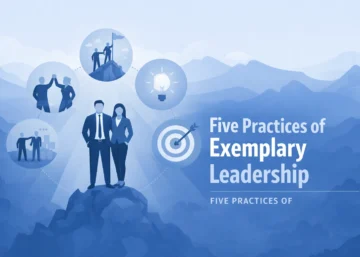Sometimes we are asked just why executive coaching is important. Our most direct response is:
It depends! How important is your continued growth and development as an executive?
The famous psychologist Abraham Maslow claimed that human beings are striving constantly toward a higher level of development. The further up a person evolves, the changes and improvements necessary to grow become more and more subtle.
This principle applies to the highly intelligent, capable and competitive individuals who make it to the C-Suite. Entry to this rarefied domain marks the beginning of a new phase in the individual’s growth and development. At this level, as Maslow observed, lessons and insights become increasingly nuanced and, as we have explored in other articles, even more likely to affect others’ lives.
Therefore, because the executive is operating at a higher level, coaching, mentorship, and guidance are even more important than they were in earlier phases of his or her career.
Here are a few reasons why executive coaching is important – not just to the executive, but to their work teams, and the entire organization.
What is Executive Coaching & What are its Benefits?
Think the most successful leaders simply have a knack for rising above? Think again. It’s about more leadership development than natural talent — it’s about having a clear compass to navigate the tough stuff. Clarity arises when strengths meet strategic focus, and that’s precisely what executive coaching delivers — pinpointing blind spots, sharpening strategic vision, and birthing resilient leaders empowered to conquer.
We take it up a notch at Hallett Leadership. Become the driving force behind a workplace where imagination knows no bounds and everyone contributes to the excitement. With our coaching, leaders take the first step toward achieving their goals, carving out their own paths to triumph.
What is Executive Coaching?
Coaching top talent means getting personal, identifying what makes them tick, and then elevating those strengths to reshape their leadership style. Empowering leaders to crush their goals, get their teams on the same page, and develop the skills that keep them on top — that’s executive coaching.
At Hallett Leadership, our seasoned coaches help individuals and teams crack the code to unlock their full potential, one guided step at a time. Leadership isn’t just about personal achievement; it’s about creating a catalyst for team success that resonates long after the immediate goal is met.
Executive Coaching, Leadership Coaching & Business Coaching — What’s the Difference?
It’s easy to confuse executive coaching, leadership coaching, and business coaching since all focus on growth and improvement. Here’s how they differ:
- Executive Coaching: Help top-tier leaders hit their marks on big-picture goals, forge rock-solid alliances, and clearly convey their vision to the people who matter most – inside and outside the organization.
- Leadership Coaching: Aims to build core leadership skills, such as team management, delegation, and motivation, for leaders at various levels.
- Business Coaching: Concentrates on organizational performance, helping leaders refine business strategies, manage operations, and improve productivity.
At Hallett Leadership, we combine elements of all three when needed. By your team’s side, our coaches nurture growth that blooms on two fronts: personal aspirations and organizational expectations.
What is an Executive Coach?
What does it take to transform talented individuals into exceptional leaders? That’s where an executive coach comes in — expertly identifying opportunities for growth and charting a course for success. The secret to our executive coaches’ success? It’s their spirit, willingness to break free from the norm, and genuine desire to disrupt the status quo.
Hallett Leadership’s coaches are helping leaders push past their comfort zones. Leaders sharpen their thinking through candor and dynamic exchange, sand away rough edges, and press forward with intention. Transformational leadership is at the core of what our coaches do.
Executive Coaching is Good For Whom?
Who benefits from executive coaching? The truth is executive coaching is for anyone in a leadership role striving for improvement. Leaders in different stages of their careers can all experience measurable benefits through coaching. At Hallett Leadership, our programs are tailored to meet the needs of:
- C-Suite Executives: Enhance strategic thinking, refine leadership presence, and foster innovation while navigating high-level decisions and responsibilities.
- Mid-Level Managers: Develop essential skills like delegation, team leadership, and time management to motivate their teams and achieve organizational objectives.
- Emerging Leaders: Amp up your leadership by peeling back the layers to reveal your true strengths, working on weaknesses, and mapping a career path that syncs with your company’s top priorities.
Leaders facing growth hurdles, struggles to innovate, or rifts within their teams find solace in coaching that refocuses their strategy. After all, every professional athlete has a coach because they too want to elevate their game.
Executive Coaching in Different Industries
Executive coaching benefits industry leaders by addressing sector-specific challenges while building universally applicable skills. At Hallett Leadership, we work with leaders from diverse fields to ensure coaching aligns with their professional environments.
- Technology: The best tech leaders spark ingenuity, hustle to stay relevant, and corral their teams to outmaneuver opponents in fields where rules change fast.
- Healthcare: Transformative leaders seamlessly align cross-functional teams, master compliance issues, and instill trust across the board. By doing so, they unlock the potential for previously unseen successes.
- Finance: Coaching enhances decision-making under pressure, supports ethical leadership, and prepares leaders to manage risk effectively.
- Nonprofits: Mission-driven leaders develop strategies to inspire teams, maximize limited resources, and maintain focus on organizational goals.
We know that every industry has its own quirks and traits. Our executive coaching takes those differences to heart, creating a customized fit that feels just right. We’re the collaborators who help you turn bold ideas into groundbreaking realities that leave a lasting impact.
Benefits of Executive Coaching
Knowing why executive coaching is important isn’t just about individual growth — it’s about organizational success. Here are some key benefits:
- Clarity and Focus: Leaders must identify their North Star — that definitive goal that drives decision-making and galvanizes their team.
- Improved Communication: Coaching strengthens leaders’ ability to inspire and resolve conflicts effectively.
- Enhanced Decision-Making: Leaders learn to evaluate options critically and choose the best course of action.
- Stronger Teams: Coaching fosters collaboration, trust, and shared purpose.
- Adaptability: Leaders become more resilient and proactive in the face of change.
Our coaching resonates with leaders on a deep level, and the positive aftershocks don’t stop there – the entire organization feels the uplift.
Types of Executive Coaching
At Hallett Leadership, we recognize that every leader’s journey is unique. That’s why we offer three main types of executive coaching to meet a range of needs and goals.
Individual Coaching
Individual coaching provides a focused, one-on-one experience tailored to the leader’s specific needs. This type of coaching helps leaders address personal blind spots, build confidence, and develop strategies that drive long-term success.
At Hallett Leadership, our interactive approach ensures engaging and impactful sessions. Leaders work directly with a coach to improve critical communication, decision-making, and conflict resolution skills. Self-aware leaders pinpoint their growth opportunities and seize them, resulting in impassioned teams and a smoother, more successful transition through times of change.
Team or Group Coaching
Team coaching focuses on building cohesion, trust, and collaboration within a group. It’s effective for teams working toward shared goals or navigating change.
When teams collaborate with us, they discover a rebirth of synergy. Interactive exercises help us create an atmosphere of openness where mutual respect grows naturally among team members. The outcome is a stronger, more cohesive unit capable of higher performance.
Peer Coaching
Peer coaching leverages the collective knowledge of leaders who share similar challenges. This group-based approach creates an environment where participants exchange insights, provide mutual support, and explore solutions.
With Hallett Leadership’s peer coaching, you’ll find people uniting, supporting each other, and driving growth as a cohesive team. It’s a leader’s playground when they trade tales of trial and triumph.
Something magical happens when people from different backgrounds come together. Leaders emerge, and a collective sense of purpose takes shape. When leaders turn to peer coaching, they can kill two birds with one stone: solve the issue at hand and forge stronger relationships with their colleagues.
Transform Your Leadership Today
Great leaders are shaped through experience and guidance. At Hallett Leadership, we specialize in creating transformational leadership through our personalized and interactive coaching programs. We can help you unlock your full potential and inspire meaningful change.
Ready to take the next step? Contact Hallett Leadership today and start your coaching journey. Let’s build a brighter future together!
The Johari Window For Understanding How Blind Spots Work
We at Hallett Leadership greatly appreciate and frequently employ the Johari Window as a map to help clients understand the nature of blind spots. The Johari Window also provides greater context for what can happen after the client shines the light of awareness into his or her blind spot.

As you can see in the image above, the upper right corner of the quadrant is the territory of the client’s psyche that others are aware of, but that the client him/herself is unaware of.
The more an executive opens up to new possibilities, and to learning what he or she doesn’t know he/she doesn’t know, they are available to feedback. Not only feedback from the coach, but also feedback from the entire team surrounding that executive.
Through receiving feedback, learning to exchange feedback with others, and sharing more of his/her genuine nature (authenticity), content not only from the client’s blind spot, but also from the client’s hidden (or private) self begins moving into the public self box in the upper left corner.
This process creates valuable opportunities for the executive client to learn more about him/herself, and grow in self awareness. Increased self awareness leads to improved relationships, communication, leadership outcomes, and executive effectiveness across the board.
Bottom line: increased awareness leads to increased results.
Simply put, self-awareness is the currency through which the executive acquires new leadership abilities and increased influence in the organization.
An executive coach facilitates increased self-awareness.
Clients Deploy New Awareness Through Effective Action
It is common for people in all places at all times to experience insights, but not act on those insights. Those insights do not become reality.
In this final stage of the learning and development process, the coach supports the client in acting effectively and productively upon new awarenesses and insights.
This stage, which you might think of as “show time,” is where the executive shifts from discovery and growth, to coming home with valuable new lessons learned and applying them to the team, and the larger organization.
In the optimal scenario, the executive’s new modes of thinking, interacting and behaving align with a larger effort to reinvent the company as a place with high performance leaders at every level of the organization.
Conclusion
We hope this article has been helpful in clarifying why executive coaching is important, and how it can be a key tool in the process of developing individual executives into high performance leaders, capable of transforming entire teams and departments into places where high performance is the new normal state of affairs.
Best of luck!





